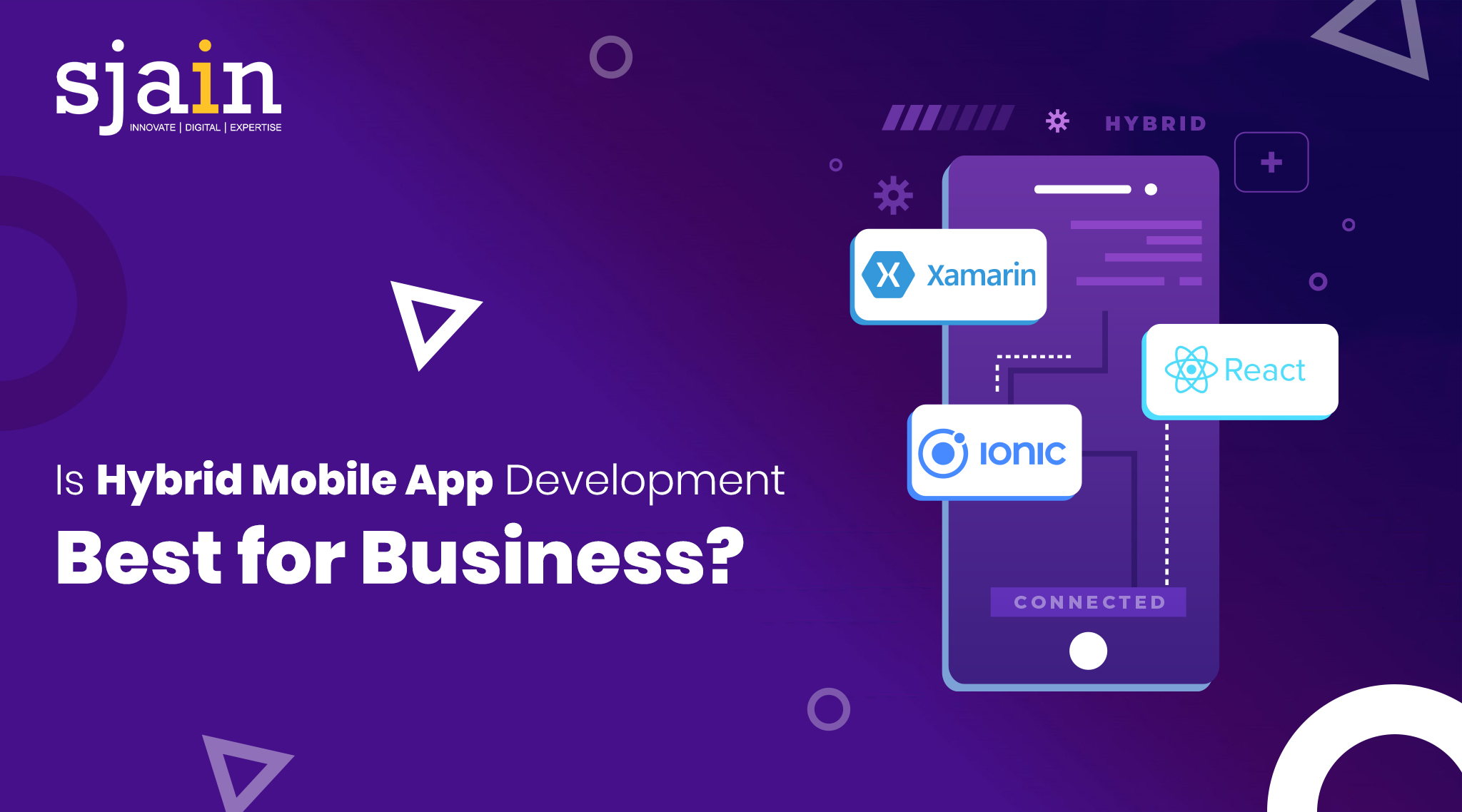Is Hybrid Mobile App Development Best for Business?
An increasing number of businesses are seeing the importance of offering their services and products on mobile devices, but many don’t know where to start or which approach to take. What should you do if you’re ready to build your app, but aren’t sure how to decide on its type? Are there any compelling reasons to develop a hybrid mobile app for business? This blog article will address all of these concerns and more! Keep reading to learn everything you need to know about hybrid mobile app development and why you should consider going for it when creating your next app.
What are Hybrid Mobile App?
Hybrid vehicles combine elements of both gasoline and electric cars to create an energy-efficient ride. The similar idea can be used in mobile apps. Hybrid mobile apps are built using a combination of native and web technologies, offering businesses several advantages over native or web-only apps. Hybrid mobile app development allows you to use standard web technologies that you’re already familiar with and reduce costs significantly.
Why choose Hybrid Mobile App Development
Hybrid mobile app for business offers numerous advantages over traditional app development strategies, including reduced costs and time to market, a wider range of supported devices, and an easier time meeting the specific needs of your users. You’ve probably heard about the hybrid mobile app development, but are unsure if you should actually take the plunge. Let’s break down what hybrid apps are and how they can help your business before deciding if this technology should become part of your app strategy.
1. Hybrid apps are built using web technologies like HTML5, CSS3, and JavaScript. As such, they combine many of the benefits of native and mobile web apps without locking users into an OS or specific device.
2. They eliminate the need to create multiple apps (one for iOS and one for Android) in order to reach all customers, and as they’re cheaper to develop than native mobile apps, it makes them an ideal choice for startups or small businesses looking to build their first app or explore mobile app development without significant initial investment costs.
3. You can customize just what your app displays when it opens; there’s no need to wait on approval from an Apple/Google store – all updates are made immediately available to end-users as soon as you push them live.
4. And because they’re web-based, hybrid apps have a long shelf life – there’s no time limit for how long it will take you to develop your idea or how quickly it will be superseded by newer technology: The new version is out? No problem! Just update and carry on.
5. Hybrid apps are also easy to create because they don’t require developers to learn new languages or frameworks. Rather than developing separate apps for each platform and then trying to merge them later, developers write code once, which can then be used across multiple devices and operating systems.
Reasons to Consider a Hybrid Mobile App Development for Business
Hybrid mobile apps are catching on in the business world, and for good reasons: hybrid mobile app combines the best features of native apps and web apps, resulting in something far more powerful than either one alone. If you’re an entrepreneur looking to develop a mobile app for your company, don’t miss this guide!
Security
The best mobile apps are built with security in mind. Hybrid mobile app development allows for comprehensive integration of all of your business systems and resources to create a high-end app that is secure, reliable, and efficient. This can also extend to company data that is used by your employees on their phones – some companies fear that sensitive data may get lost or accessed through an unreliable system, but hybrid app development ensures that only authorized employees can access sensitive information.
Real-Time Data Updates
Hybrid mobile apps can load data in real-time rather than waiting for users to access it. It’s one of their biggest advantages for business applications. It means users won’t have to wait long periods of time for critical information on things like inventory levels or sales numbers. And for companies that rely on push notifications or automated emails to reach customers when something happens, a hybrid mobile app allows them to quickly send alerts as events occur.
Reduced Risk in Development
Hybrid apps are more suited to short-term, one-off projects. With cross-platform app development, your web design and development teams only need to write code once, they don’t have to replicate it for iOS and Android separately, as they would with native mobile app development. This makes hybrid mobile app development an attractive option for businesses in search of efficiency.
Lower Cost and Timeframe
A Hybrid mobile app for business is built on Web technologies such as HTML5, CSS3, and JavaScript. This means there is no need to build an app from scratch or make any extra purchases. Also, hybrid mobile app development can be completed in a shorter timeframe than native apps. These factors could save your business both time and money, allowing you to stay competitive in your industry while keeping costs low.
Continued Reliability
As said earlier, Hybrid apps are made with technology from both native app development and mobile web app development. This means your app is less likely to be affected by problems on either side of development, leading to fewer bugs and more stable performance overall.
Choosing among Native, Mobile Web, and Hybrid solutions
While there are some good reasons to go native, in many cases, businesses find they get by just fine with a mobile web or hybrid app. When looking at all three options, one of your top considerations should be how easy or difficult it will be to maintain and update your solution in the future. Native apps are great when there is little need for updating them over time when your business model does not change much.
However, if you plan on making significant changes to your mobile presence over time (say adding new features and functionality), you’ll probably want a more flexible option such as web or hybrid apps. It’s also worth noting that many users find HTML5 mobile sites clunky and unresponsive on mobile devices, so if responsiveness and speed are key factors in your business model, going with a hybrid mobile app development for business may be best.
Introducing mobility into the business can help to expand its reach. It is critical to create a mobile app that reflects your company’s beliefs, products, and services. The cross-functionality of mobility solutions can potentially improve the way your business operates. Knowing the newest trends and technologies, Sjain Ventures loads the app with features as needed. They help your business operate smarter and generate more money by utilizing the most up-to-date features and technology.

